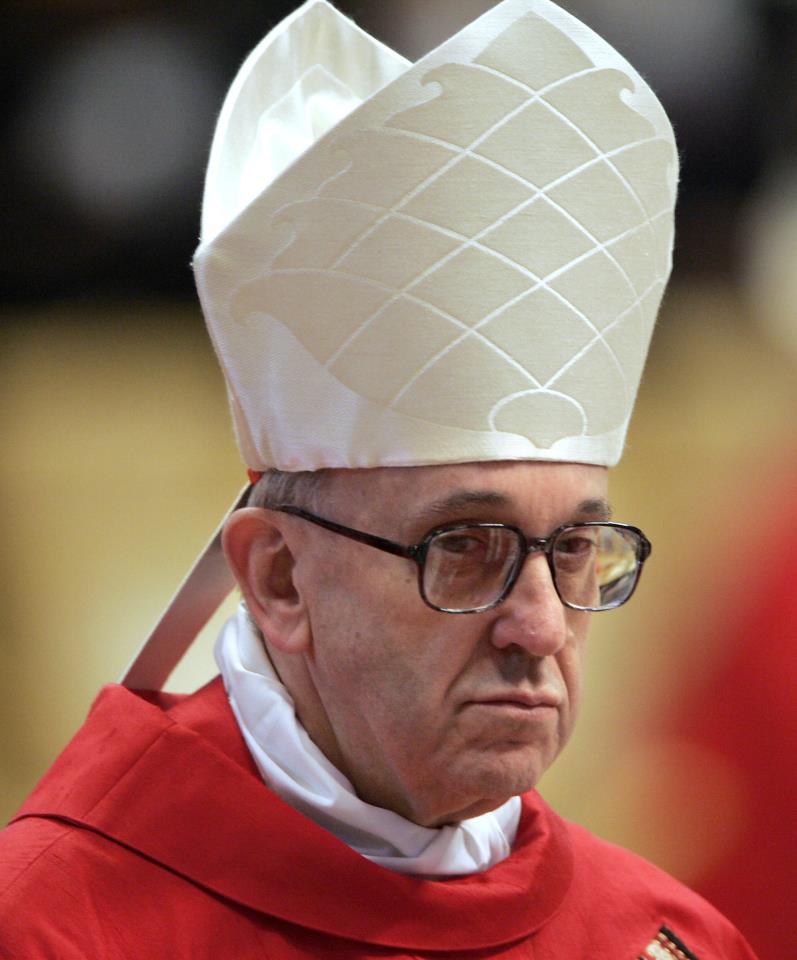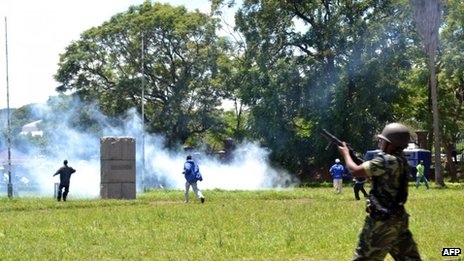The Argentinian is known as a humble man who cooked his own meals and often rode the bus to work, even after becoming a cardinal.
Francis is the first ever pope from the Americas, an austere Jesuit intellectual who modernised Argentina’s conservative Roman Catholic Church.
Known until Wednesday as Jorge Bergoglio, Pope Francis is respected as a humble man who denied himself the luxuries that previous Buenos Aires cardinals enjoyed.
In the past, the 76-year-old pontiff often rode the bus to work, cooked his own meals and regularly visited the slums that ring Argentina’s capital.
He accused fellow church leaders of hypocrisy, and forgetting that Jesus Christ bathed lepers and ate with prostitutes.

“Jesus teaches us another way. Go out. Go out and share your testimony, go out and interact with your brothers, go out and share, go out and ask. Become the Word in body as well as spirit,” the then-Cardinal Bergoglio told Argentina’s priests last year.
His legacy as a cardinal includes his efforts to repair the reputation of a church that lost many followers by failing to openly challenge Argentina’s murderous 1976-83 dictatorship.
He also worked to recover the church’s traditional political influence in society, but his outspoken criticism of President Cristina Kirchner could not stop her from imposing socially liberal measures, from gay marriage and adoption to free contraceptives.
He came close to becoming pope in 2005, reportedly gaining the second-highest total in several rounds of voting before bowing out in the conclave that elected Pope Benedict XVI.
Initially trained as a chemist, Bergoglio taught literature, psychology, philosophy and theology before taking over as Buenos Aires archbishop in 1998.

He became cardinal in 2001, when the economy was collapsing, and won respect for blaming unrestrained capitalism for impoverishing millions of Argentines.
Sergio Rubin, Bergoglio’s authorised biographer, said the new pope felt most comfortable taking a very low profile, and his personal style was the antithesis of Vatican splendour.
“It’s a very curious thing. When bishops meet, he always wants to sit in the back rows. This sense of humility is very well seen in Rome,” Mr Rubin said before the 2013 conclave to choose Benedict’s successor.
Bergoglio has stood out for his austerity. Even after he became Argentina’s top church official in 2001, he never lived in the ornate church mansion where Pope John Paul II stayed when visiting the country.
For years, he took public transportation around the city.
Bergoglio almost never granted media interviews, limiting himself to speeches from the pulpit, and was reluctant to contradict his critics, even when he knew their allegations against him were false, said Mr Rubin.
That attitude was burnished as human rights activists tried to force him to answer uncomfortable questions about what church officials knew and did about the dictatorship’s abuses after the 1976 coup.

Many Argentines remain angry over the church’s acknowledged failure to openly confront a regime that was kidnapping and killing thousands of people as it sought to eliminate “subversive elements” in society.
It’s one reason why more than two-thirds of Argentines describe themselves as Catholic, but fewer than 10% regularly attend mass.
Under Bergoglio’s leadership, Argentina’s bishops issued a collective apology in October 2012 for the church’s failures to protect its flock. But the statement blamed the era’s violence in roughly equal measure on both the junta and its enemies.
“Bergoglio has been very critical of human rights violations during the dictatorship, but he has always also criticised the leftist guerrillas; he doesn’t forget that side,” Mr Rubin said.
The bishops also said “we exhort those who have information about the location of stolen babies, or who know where bodies were secretly buried, that they realise they are morally obligated to inform the pertinent authorities”.
But that statement came far too late for some activists, who accused Bergoglio of being more concerned about the church’s image than about aiding the many human rights investigations.

.jpeg&w=60&q=100&h=60)




.jpeg&w=60&q=100&h=60)





